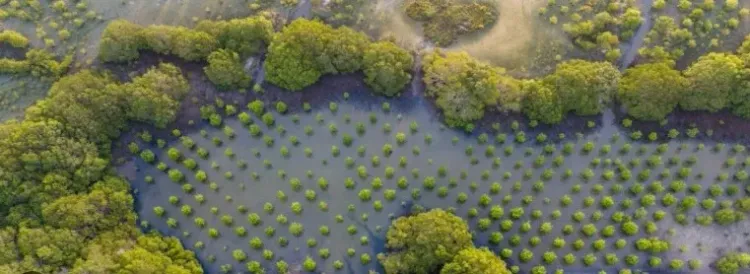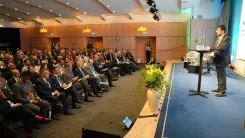How Did the UN Choose World Restoration Flagships Across Three Continents?

Synopsis
The UN has unveiled its first World Restoration Flagships, focusing on restoring marine ecosystems across three continents. This significant initiative addresses pollution and biodiversity loss, demonstrating a commitment to ecological restoration. Discover how these flagship projects are set to transform our oceans and promote sustainable practices worldwide.
Key Takeaways
- UNEP and FAO announced World Restoration Flagships.
- Initiatives restore nearly five million hectares of marine ecosystems.
- Flagships located in Northern Mozambique, Mexico, and Spain.
- Part of the UN Decade on Ecosystem Restoration.
- Aims to restore one billion hectares by 2030.
Nice (France), June 11 (NationPress) The United Nations Environment Programme (UNEP) and the Food and Agriculture Organisation of the UN (FAO) revealed on Wednesday the inaugural World Restoration Flagships for this year, addressing issues like pollution, unsustainable resource use, and invasive species across three continents.
These groundbreaking initiatives aim to restore nearly five million hectares of marine ecosystems—an area comparable to the size of Costa Rica. This announcement coincides with the third UN Ocean Conference, currently taking place in this French city.
The newly recognized flagships include restoration projects in the coral-rich Northern Mozambique Channel Region, over 60 islands in Mexico, and the Mar Menor in Spain, which is noted as Europe’s first ecosystem to possess legal personhood.
These outstanding initiatives were unveiled at a gathering during the UN Ocean Conference in Nice and are now eligible for support from the UN.
Inger Andersen, the Executive Director of UNEP, stated, "After decades of taking the ocean for granted, we are witnessing a remarkable shift towards restoration. However, the challenge ahead is substantial, and we need everyone to contribute."
Andersen added, "These World Restoration Flagships illustrate the deep interconnection between biodiversity protection, climate action, and economic growth. To achieve our restoration objectives, our aspirations must match the vastness of the ocean we aim to safeguard."
The World Restoration Flagship awards are part of the UN Decade on Ecosystem Restoration, spearheaded by UNEP and FAO, which aspires to prevent, halt, and reverse ecosystem degradation across every continent and ocean.
The awards highlight notable initiatives that align with global commitments to restore one billion hectares—an area larger than China—by 2030.
World Restoration Flagships are selected as exemplary models of ongoing, large-scale, and enduring ecosystem restoration by a panel of experts from the UN Decade on Ecosystem Restoration network.
The selection process involves a detailed evaluation against 15 criteria, reflecting the 10 Restoration Principles of the UN Decade.
In 2022, the inaugural 10 World Restoration Flagships were honored as part of the UN Decade on Ecosystem Restoration, followed by the recognition of seven initiatives in 2024.
(Vishal Gulati can be reached at vishal.g@ians.in)









